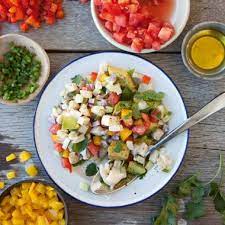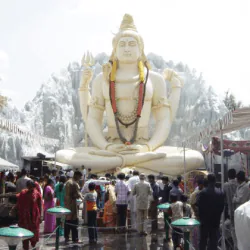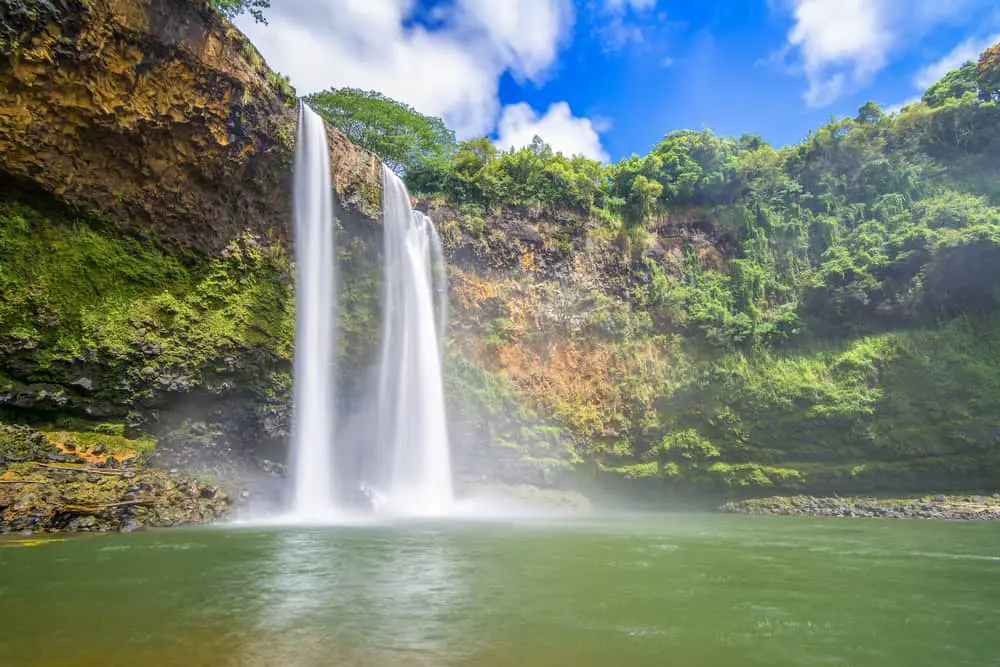The Bahamas is an archipelagic nation located in the Caribbean Sea. It has a rich cultural history, with celebrations and festivals that go beyond the traditional American holiday of Thanksgiving. From the Junkanoo parade to the world-famous conch salad festival, there are plenty of unique and exciting celebrations to enjoy in The Bahamas. In this blog post, we will explore some of the most popular and interesting cultural events that take place in this beautiful Caribbean nation. So grab your dancing shoes and get ready to experience the best of what The Bahamas has to offer!
History and Traditions of Thanksgiving in The Bahamas
Thanksgiving may be an important holiday in the United States, but in The Bahamas, the focus is on a different set of traditions. While Thanksgiving is not traditionally celebrated in The Bahamas, the nation does have its own unique customs and festivities that honor its history and culture.
The history of The Bahamas is deeply rooted in the experiences of the indigenous peoples and the arrival of European colonizers. The Bahamas became a British colony in the 17th century, and the influences of British culture can still be seen today. However, it was the arrival of West African slaves that truly shaped the cultural landscape of the islands. The blending of these diverse influences created a distinct Bahamian identity that is celebrated in various festivals and events throughout the year.
One such event is the Junkanoo parade, which is considered the pinnacle of Bahamian cultural expression. Dating back to the 18th century, the Junkanoo parade takes place on Boxing Day (December 26th) and New Year’s Day. It is a vibrant and energetic street parade featuring costumed dancers, musicians, and marching bands. The parade showcases Bahamian creativity and craftsmanship, with elaborate costumes and handmade instruments. It is a sight to behold and an experience that truly immerses you in the spirit of Bahamian culture.
In addition to the Junkanoo parade, The Bahamas celebrates several other festivals and celebrations throughout the year. These include Independence Day, which commemorates the country’s independence from British rule, Emancipation Day, which honors the abolition of slavery, Easter, a time for religious observance and festivities, and Christmas, a blend of Bahamian and Western traditions.
Other Festivals and Celebrations in The Bahamas
In addition to the well-known celebrations like Junkanoo, Independence Day, Emancipation Day, Easter, and Christmas, The Bahamas is also home to a variety of other festivals and celebrations that are worth experiencing. These events showcase the vibrant culture and traditions of the Bahamian people, and they offer a unique opportunity to immerse yourself in the local way of life.
One such festival is the Pineapple Festival, held in Eleuthera, which is known as the pineapple capital of The Bahamas. This three-day event celebrates the island’s pineapple heritage with live music, cultural performances, a pineapple eating contest, and, of course, plenty of pineapple-themed treats to enjoy. It’s a fruity extravaganza that is sure to leave you with a taste for more.
If you’re a fan of art and culture, be sure to visit the National Art Gallery of The Bahamas during the Transforming Spaces event. This annual art tour allows visitors to explore different galleries and cultural spaces across the island, showcasing the works of local and international artists. It’s a great way to support the local arts community while experiencing the diversity of Bahamian creativity.
For those looking to satisfy their sweet tooth, the Coconut Festival in Grand Bahama is the place to be. This festival celebrates all things coconut, with a range of coconut-themed activities, such as coconut shelling contests, coconut food demonstrations, and even coconut fashion shows. It’s a tropical celebration that will have you going nuts for coconuts.
These are just a few examples of the many festivals and celebrations that take place in The Bahamas throughout the year. Each event offers a unique opportunity to connect with the local culture, meet new people, and create lasting memories. So whether you’re a foodie, an art lover, or simply looking for a good time, The Bahamas has a festival for you.
Junkanoo: A Carnival Celebration
When it comes to vibrant and energetic celebrations, the Junkanoo parade in The Bahamas takes the cake. Considered the pinnacle of Bahamian cultural expression, the Junkanoo parade is a carnival celebration like no other. Dating back to the 18th century, this colorful extravaganza takes place on Boxing Day (December 26th) and New Year’s Day, bringing the streets of The Bahamas alive with an explosion of music, dancing, and stunning costumes.
Picture this: as you make your way through the crowded streets, you’ll be greeted by the rhythmic beats of drums, the blaring sounds of horns, and the infectious energy of the performers. Elaborately dressed dancers, known as “rushers,” showcase their creative costumes adorned with feathers, sequins, and vibrant colors. These costumes can take months to create, and the attention to detail is truly awe-inspiring.
But the spectacle doesn’t stop at the costumes. The music of the Junkanoo parade is just as captivating. Musicians play a variety of traditional Bahamian instruments, including goatskin drums, brass horns, and cowbells, creating a lively and infectious rhythm that will have you tapping your feet and moving to the beat.
Independence Day: A National Celebration
Independence Day in The Bahamas is a day of immense pride and celebration. This national holiday, which falls on July 10th, commemorates the country’s independence from British rule in 1973. It is a day filled with festivities, parades, cultural performances, and fireworks that bring the entire nation together.
The celebration of Independence Day in The Bahamas reflects the strong sense of unity and national identity that runs deep within the Bahamian people. It is a time when the rich history and cultural heritage of the country are celebrated with great enthusiasm. The streets are adorned with Bahamian flags, and people of all ages come out to participate in the festivities.
The day begins with a flag-raising ceremony, where the Bahamian flag is hoisted and the national anthem is sung. This is followed by parades featuring marching bands, dance groups, and colorful floats. The parades showcase the diversity of Bahamian culture, with participants dressed in traditional costumes representing the various islands of the archipelago.
Independence Day is also a time for cultural performances, with live music, dance shows, and theatrical performances taking place throughout the country. Traditional Bahamian dishes, such as conch fritters and guava duff, are served at picnics and family gatherings. The day culminates with spectacular fireworks displays that light up the night sky.
Independence Day is not only a time for celebration but also a time for reflection on the struggles and triumphs that have shaped the nation. It is a reminder of the hard-fought battle for freedom and self-determination. As the Bahamian people come together to celebrate their independence, they also honor the legacy of those who fought for their rights and paved the way for a brighter future.
Whether you are a visitor or a resident, Independence Day in The Bahamas is an experience that should not be missed. It is a day that captures the spirit and essence of the nation, a day when the pride and joy of being Bahamian are on full display. So join in the celebrations, immerse yourself in the vibrant culture, and experience the true spirit of independence in The Bahamas.
Emancipation Day: Honoring Freedom
Emancipation Day in The Bahamas is a significant celebration that honors the abolition of slavery and commemorates the freedom of enslaved individuals. This important holiday, which takes place on August 1st, holds great significance for the Bahamian people and serves as a reminder of the nation’s tumultuous history and the resilience of its people.
Emancipation Day is a time for reflection and remembrance, as well as a celebration of the strength and courage of those who fought for freedom. The day is marked by various events and activities that pay homage to the struggles and sacrifices of the past.
One of the key features of Emancipation Day is the reenactment of the emancipation proclamation. This symbolic event includes dramatic performances, speeches, and cultural displays that transport participants back to the era of slavery and remind them of the hardships endured by their ancestors. It is a powerful and emotional experience that serves as a reminder of the progress that has been made and the work that still needs to be done to ensure equality for all.
In addition to the reenactments, Emancipation Day is also marked by cultural performances, music, dance, and storytelling. Traditional Bahamian food is enjoyed, and there are often exhibitions and displays that showcase the art, history, and cultural heritage of the Bahamian people. It is a time for communities to come together, reflect on the past, and celebrate the strides that have been made towards freedom and equality.
Easter: A Time for Religious Observance and Festivities
Easter is a time of religious observance and festivities in The Bahamas, combining the solemnity of religious traditions with the joyous celebrations that accompany the holiday. While Easter may be primarily associated with chocolate eggs and bunnies in some parts of the world, The Bahamas holds true to its deep-rooted religious heritage during this time.
For many Bahamians, Easter Sunday is a day of religious observance, with churches across the islands holding special services and processions to commemorate the resurrection of Jesus Christ. The day is filled with prayer, hymns, and sermons, providing a time for reflection and renewal of faith.
But Easter in The Bahamas is not just about religious observance; it is also a time for joyous festivities. One of the most popular Easter traditions is the kite flying festival, where people of all ages gather to fly kites in parks, fields, and on the beach. Colorful kites fill the sky, symbolizing the ascension of Christ and the triumph of light over darkness.
Easter Monday is known as “Pancake Day” in The Bahamas, where families and friends come together for picnics and outdoor gatherings. It is a day to enjoy delicious Bahamian pancakes, made with ingredients like cornmeal, flour, and sugar, topped with syrup or honey. These pancakes are a delicious treat that everyone looks forward to on this special day.
Whether you are observing the religious traditions or participating in the joyous festivities, Easter in The Bahamas is a time of unity, faith, and celebration. It is a holiday that brings families and communities together, reminding us of the importance of both solemnity and joy in our lives. So join in the festivities, fly a kite, indulge in pancakes, and embrace the spirit of Easter in The Bahamas.
Christmas: A Blend of Bahamian and Western Traditions
Christmas in The Bahamas is a unique blend of Bahamian and Western traditions, creating a festive season like no other. While the holiday may be celebrated around the world, The Bahamas puts its own spin on the festivities, incorporating its vibrant culture and traditions.
One of the most notable aspects of Bahamian Christmas celebrations is the Junkanoo rushout. Similar to the Junkanoo parade, this street celebration takes place on Boxing Day and New Year’s Day and features costumed dancers, music, and infectious energy. It’s a fusion of Christmas spirit and Bahamian culture, with participants showcasing their creativity and talent through elaborate costumes and rhythmic performances.
In addition to the Junkanoo rushout, Christmas in The Bahamas is a time for family, food, and festivities. Bahamians gather with loved ones to enjoy traditional dishes such as baked ham, macaroni and cheese, and coconut tart. The sound of caroling fills the air, as groups of singers go from house to house, spreading holiday cheer. And of course, there’s no shortage of sweet treats, from rum cake to gingerbread cookies.
Bahamian Christmas decorations also reflect the blending of cultures. You’ll find brightly colored lights adorning homes and palm trees adorned with ornaments. It’s a tropical twist on traditional Western Christmas decorations.




